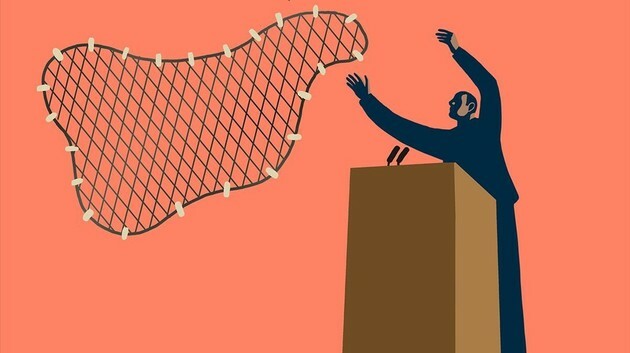Populism it is a political practice whose leader takes it upon himself to save the country and the people.
Populism takes on promises aimed at vulnerable sectors of the population, while treating the elite as the enemy.
This strategy dates back to the Roman Empire and reappeared in several countries in the 20th century.
Today, the term “populism” is used pejoratively to offend political opponents.
meaning of populism
The term is derived from Latin and means "people" (populus) and associated with the suffix of Greek origin “ism”.
Origin of populism
Populism has its origins in the Roman Empire, especially in the reigns of Tiberius Gracchus, Caius Mario, Julius Caesar and Caesar Augustus. It was known under the name of "Bread and Circus" (panem et circus).
The Roman people were co-opted to support these emperors through circus shows and food distribution.
Likewise, populism is part of demagoguery, as it establishes an emotional link with the “people”, treated as an abstract category.
The result is always consenting authoritarianism and an imperceptible domination by the one who is dominated.
Characteristics of Populism
Politics
populism criticizes the political liberalism and its representatives are placed on top of political parties.
Therefore, direct contact between the urban masses and the leader is essential, as all intermediation of parties or corporations in this process is avoided.
In order to create an identity and illusion of political participation, popular gatherings and parties are organized to include social groups historically marginalized from the political scene.
The people are presented as a kind, fair entity and guardian of the nation's values. Anyone who does not fit this description is called an anti-people.
Economy
Populism carries out nationalist import substitution policies, nationalization of activities strategic economics, imposing restrictions on foreign capital and granting rights social.
The result is brutal public indebtedness, as these policies discourage the productive sector.
Cooptation
Various resources are used by the leader to gain popular support. These devices range from simple and popular language, massive personal propaganda and simplification of complex problems through rhetorical devices such as fallacy and demagoguery.
In this way, populism prepares the ground for the implementation of authoritarian measures that disrespect political parties and democratic institutions.
Therefore, in addition to authoritarianism and welfare, populist governments control the media so that they are an instrument for publicizing government actions.
populist strategies
The populist politician uses rhetorical effects and unrealistic proposals to benefit the most popular sectors. On the other hand, it seeks to limit the power of traditional political elites, considered rivals.
As a political philosophy, it asserts the rights and power of the disadvantaged at the expense of elite privileges.
Thus, despite the improvements in the quality of life of the populations involved, populism should not be confused with full democracy. It preserves citizens' rights and maintains their freedom, which is not the case in populist regimes.
Likewise, the leader and the people become dependent on each other through the exchange of favors. This generates practices such as patronage where people are seen as useful beings only for elections and not full citizens.
populism in Brazil
The main populist leader in Brazil was the president Getulio Vargas.
During his government, especially at the time of the new state, populist capture techniques were used: nationalist discourse, aggrandizement of the figure of the leader and participation of the people in civic parties.
Meanwhile, there were no presidential elections, the media was censored, and the political police kept watch on internal and external enemies.
The governments of JK and Jânio Quadros followed, considered populist insofar as their leaders presented themselves as those who had the solution to the country's problems.
populism today

Populist governments returned to the political scene in the 21st century after the exhaustion of the neoliberal model.
In Latin America, we see leaders like Hugo Chávez in Venezuela and Cristina Kirchner in Argentina.
In turn, in Europe, populism is linked to right-wing parties such as the Italian "Liga Norte", headed by Matteo Salvini. In France, Deputy Marine Le-Pen's "National Front" grows with each election.
The government of Donald Trump, in the United States, and Recep Tayyip Erdo, an, in Turkey, are also considered populists.
Main Populist Regimes and Leaders
With representatives on both the left and the right, modern populism is a typical phenomenon of the 1920s, especially after the 1929 crisis.
In Latin America, it emerged from 1930 onwards, when industrialization and urbanization grew. As a result, the weakening of oligarchic and agrarian political structures is registered.
In Brazil, it emerged with the advent of 1930 revolution, which overthrew the oligarchic Old Republic and established Getúlio Vargas in power.
Finally, populist movements gained strength in first world democracies from the 1980s onwards, especially in Canada, Italy, New Zealand and Scandinavian countries.
populist leaders
Finally, the most prominent leaders of populism were:
- Benito Mussolini (1922-1943) in Italy;
- adolf hitler (1932-1945) in Germany;
- Getulio Vargas (1930-1945/1951-1954), in Brazil;
- Lázaro Cárdenas (1934-1940), in Mexico;
- Juan Domingo Perón (1946-1955/1973-1974), in Argentina;
- Gustavo Rojas Pinilla (1953-1957), in Colombia.
See too: Avoid Peron


